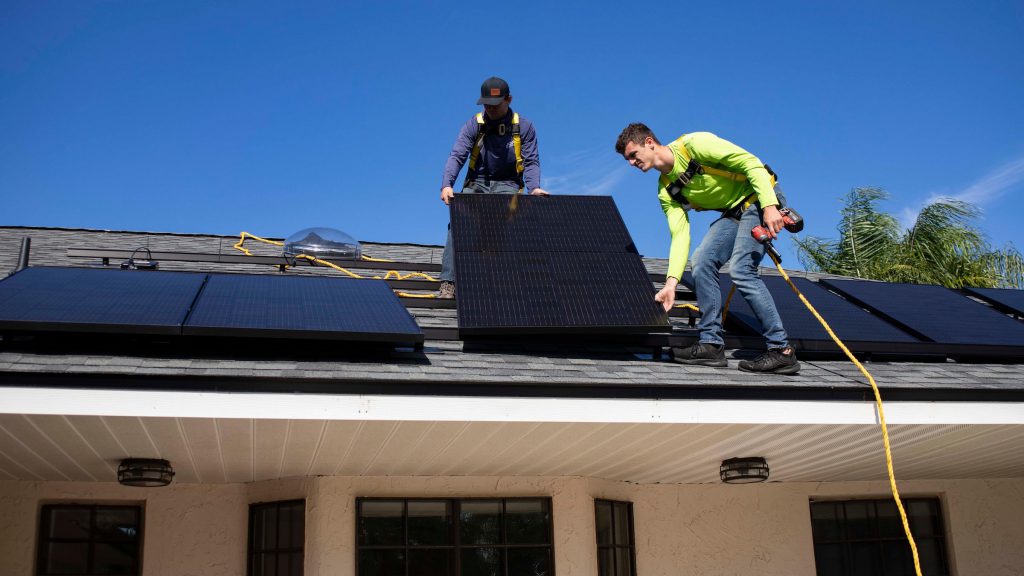The European solar industry stands at a pivotal juncture, grappling with the surging tide of competition from Chinese photovoltaic panel manufacturers. At the heart of this challenge is the Swiss solar giant, Meyer Burger, which is now confronting the potential closure of its Freiberg site in Germany. This scenario underscores a broader issue threatening the very fabric of Europe’s green energy ambitions.

The Chinese avalanche
The landscape of the solar market underwent a dramatic transformation following the European Union’s decision to lift customs barriers on Chinese solar panels in 2018. Since then, imports from China have nearly quadrupled, now dominating almost 90% of the European market. This influx has led to a drastic reduction in prices—nearly halving them in 2023 alone. Such pricing pressures have placed an immense strain on European manufacturers, unable to compete on cost.
A strategic turn
Meyer Burger’s contemplation of shuttering its Freiberg facility, which opened merely two and a half years ago, is emblematic of the broader challenges facing the European solar industry. This potential closure highlights the difficulty of sustaining large-scale solar production in Europe amid fierce competition from China. It raises critical questions about the future direction of Europe’s energy independence and sustainability goals.
Political support: a missing piece
The predicament of the European solar industry is further exacerbated by a perceived lack of political support. Unlike the United States and India, which have implemented protective measures to shield their domestic markets, Europe appears somewhat adrift in formulating a coherent strategy to counterbalance Chinese dominance in the solar sector. This lack of decisive action risks cementing a dependency on external sources for solar technology, undermining Europe’s energy security and autonomy.
Reimagining Europe’s solar strategy
To navigate this turbulent landscape, a multifaceted approach is essential. Europe must not only enhance its manufacturing capabilities but also foster innovation within the solar sector. This includes investing in research and development to create more efficient and cost-effective solar technologies that can compete on the global stage.
Policy interventions and market incentives
Moreover, targeted policy interventions are critical. The European Union could consider reintroducing tariffs on imported solar panels or offering subsidies and incentives for domestic production. Such measures could level the playing field, providing European manufacturers with a fighting chance against their heavily subsidized Chinese counterparts.
The path to solar sovereignty
Achieving solar sovereignty should be a cornerstone of Europe’s energy policy. This entails not just securing a stable and affordable supply of solar panels but also nurturing a robust ecosystem of European solar companies. By doing so, Europe can ensure that its transition to renewable energy is not only sustainable but also resilient to geopolitical shifts.
Conclusion: a call to action
The challenges facing the European solar industry underscore a critical crossroads for the continent’s energy future. As Chinese manufacturers continue to assert their dominance, Europe must respond with strategic foresight and collective action. Strengthening the domestic solar industry through innovation, political support, and strategic policy-making will be paramount. The quest for energy independence and sustainability is a marathon, not a sprint, requiring commitment, collaboration, and courage. It’s time for Europe to rise to this challenge, embracing a future where it can harness the sun’s power on its own terms.
In navigating these challenges, the European solar industry has an opportunity not only to redefine its competitive edge but also to solidify its role in the global transition to renewable energy. The path forward is complex, requiring a delicate balance between economic, environmental, and geopolitical considerations. Yet, the rewards of achieving a sustainable, independent solar sector are immense, promising a greener, more resilient future for all of Europe.

 Open Immovlan
Open Immovlan